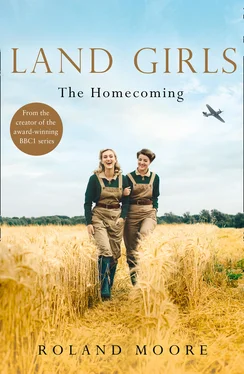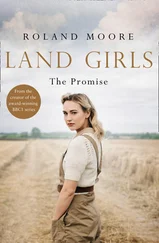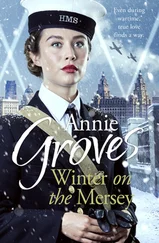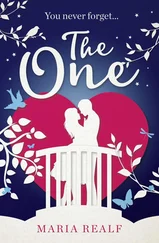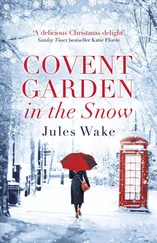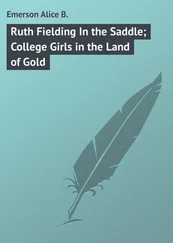Roger smiled. “Oh no, it’s a good thing. It means I get credit for a story that many more people will read. And that means a lot more people will know about your heroism. And I hope I’m not talking out of turn when I say that although the story is just the sort of inspiring thing that Blitz-torn London needs to read, its success is also due to how fine you look in the photograph, Mrs Jameson.”
Connie felt uneasy at the attention. Henry wouldn’t be happy about her being seen as some sort of poster girl for plucky Britain. The wolf-whistles outside the pub were enough to get Henry’s back up, without any added spotlight. She put it out of her mind and asked about the explosion. Had the police found out who was responsible yet?
Roger shook his head, spraying crumbs like a Labrador shaking itself from a bath. “They’re not sure. But the remains of the device were the same as one used to blow up a post-office truck a month ago. And the station guard at Brinford recalled a tall man taking the train, the same one you got, every day for the seven days before the crash. He wasn’t on it on that fateful day, but people are saying that his other journeys were for reconnaissance. Check the timings and that.”
It chilled Connie that a seemingly ordinary commuter, a man who would go unnoticed in the daily bustle, could have been there timing the journey to the precise second.
After another biscuit, Roger Curran tipped his small hat a second time and left the vicarage (his tea largely untouched). The story would be in a national newspaper! Connie shrugged. She hoped it would still be tomorrow’s fish-and-chip paper and then it would all be forgotten about. But she would be wrong. It was a story that would change her life.
Margaret Sawyer froze in fear as she approached her house. Roger Curran, the reporter from The Helmstead Herald was standing outside the front door. He’d come to the house. No one ever came to the house!
He rapped on the knocker, brushed the biscuit crumbs from his tank top and cleared his throat. He glanced nonchalantly at the neat front garden, decorative rows of small box bushes trimmed into squares alternating with rhododendron bushes that were showing their last flowering for the season. The whole design was so regimented that Roger Curran assumed a soldier must live here.
Margaret ducked down behind a wall, peering over the top to see if Vera or Michael would answer. She prayed that neither of them were inside the house. Vera might be out selling vegetables and Michael was probably in one of the outbuildings, tending to his seedlings. And even if Michael was at home, he rarely answered the door, so she thought she might be safe on that score.
After what seemed like an age, Roger Curran turned on his heel. He glanced up at the house one last time and made his way down the path. He passed the low wall where Margaret was hiding, but didn’t see her. She was relieved. So much for eagle-eyed journalists!
As she watched the rotund figure amble away down the lane, Margaret hoped with all her heart that he wouldn’t return and that would be an end to it.
Two days earlier.
The rain lashed down, turning the London pavements into glistening onyx walkways in the dying light of early evening. Vince Halliday shivered against the cold and pulled the collar up on his great coat. The coat used to belong to a GI, but Vince had won it in a game of poker. Or, to be strictly accurate a rigged game of poker. Still, who was complaining? Vince had a new coat out of it and the GI had learnt a lesson in not being gullible.
Vince was a powerfully built man in his early thirties with icy-blue eyes, slicked-back hair and an air of menace about him. Braces held his trousers high on a frame that had little definition. Vince’s body was wide and he didn’t taper at any point. He just went straight up and down, like a wide, imposing fence post. He enjoyed playing on his intimidating presence, liking the discomfort that other people could feel when near him. Vince’s keen eyes darted from side to side as he crossed the Fulham Road, weaving around a pony and trap and then a car to make it to the other side. He made his way across to an alleyway, which was illuminated by the light of a single window from a block of flats. Vince squinted as his eyes adjusted to the gloom, wary of being jumped. Fulham was a rough area.
At the end of the alley, in a small, rain-lashed courtyard, was a butcher’s van. As Vince approached, two heavy-looking men, pin-stripe suits and trilby hats denoting their status as wide boys, quickly appeared from the van. The one with the pencil moustache indicated for Vince to follow them. Vince’s fingers gripped the cosh in his pocket. He might need it. As was always the case in Vince’s life, when he met someone, he’d weigh them up for their potential threat value. Could he win against them in a fight? Vince decided that he could take these two apart if he had to. But he hoped it wouldn’t come to that.
“You got it?” Moustache Man said as they swept under an awning and walked into a warehouse.
“Does it look like I’ve got it?” Vince replied, with contempt.
Moustache Man threw a look at his partner, a man with a large hooked nose and heavy eye brows. An ex-boxer, thought Vince. He thought he could still take him apart in a fight. Moustache Man was also assessing the situation. Was he losing face by being talked to in this way? Should he do something? But before he could decide on a course of action, an older voice bellowed from the recesses of the damp warehouse.
“Vince! I see you brought the crappy weather with you!”
A rotund man in a light-grey pinstripe suit appeared from the gloom and shook Vince warmly by the hand. Vince clocked that he was wearing a signet ring on each finger. It was his trademark: jewellery that could double as a knuckle duster. This was Amos Ackley – a comical-looking figure with a shiny bald head. But Vince didn’t underestimate the appearance of this man and was somewhat relieved when he got his hand back in one piece from the crushing hand shake. A handshake that was designed to intimidate. Amos Ackley was an amusingly named, but vicious, gangster and black-market trader, a man who had run most of Kensington, Fulham and Putney since 1937. As the authorities concentrated their efforts on the immediate effects of the war, the air raids, the destruction, the looting, Amos had seen his shady little empire expand, filling the darkness left by lawlessness. Now he liked to think of himself as Mr Black Market, a man who could get you anything you needed even without a ration book. He had the police in his pocket on the understanding that Amos wouldn’t commit too many open atrocities on the streets of South London. But that was fine, the only people who usually felt his wrath were gangsters further down the food chain or those civilians, as he called them, who dared to resist his attempts at extortion and blackmail.
“Bit of rain is good for you,” Vince said, smiling.
Moustache Man and Eyebrows circled round to stand either side of Amos Ackley. Vince noticed that both the heavies had a hand in their pockets. It didn’t matter if they didn’t actually have weapons in there because, like the crushing handshake before it, he knew this was being done to intimidate him. To show him who was boss.
“Now then, I’m looking forward to my Sunday lunch, Vince,” Amos smiled.
“The sirloin is out of this world,” Vince replied. “Succulent.”
Amos laughed. “Hark at you, the flaming expert.”
“I’ve had too much bad meat in my time to not know the difference, Mr Ackerly,” Vince smiled.
“And you’ve lifted a lorry full of this stuff?”
Vince knew he didn’t have to go into specifics about where it had come from. Amos wasn’t interested in provenance. “It was supposed to be filling a load of yank stomachs, but their supply chain got broken, didn’t it? I just need the three hundred and it’s yours, van included.” He knew three hundred pounds was a lot of money, but then he was selling a huge amount of premier quality sirloin steak. And in a country where meat was rationed, the sales potential of that meat was phenomenal.
Читать дальше
